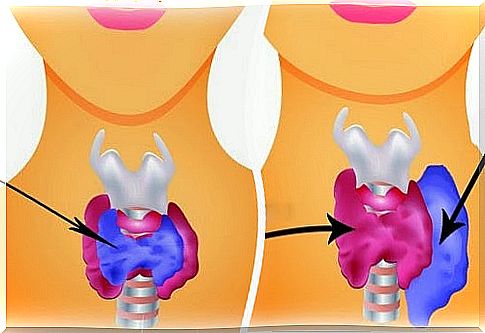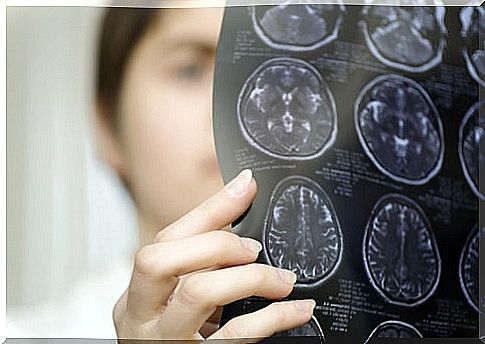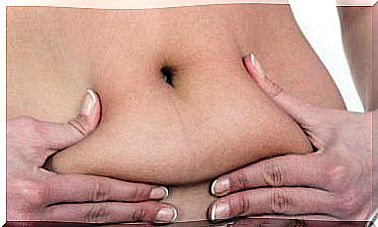Tremors: The Origin Is Not Always In Parkinson’s Disease
It is very possible that on some occasion you have felt tremors in your hands, and instantly, you have been scared. ” Could it be Parkinson’s disease? Will I have a neurological problem? ” .
People sometimes tend to think the worst, hence the first thing we should do in these cases is to calm down.
According to Dr. José Matías Arbelo in an interview conducted by the Health Information Portal for Doctors and Healthcare workers, nothing will happen as long as it is not something recurrent that, in addition, hinders our daily mobility.
The tremors of a hand, of the legs, or to feel how our necks tremble can have different origins. It may be due to simple fatigue, although on some occasions it could be a slightly more serious problem.
However, we will tell you that these types of ailments are more common from the age of 65, and that it will always be our doctor who gives us an accurate diagnosis.
Stay calm, see if the tremors are occasional or constant, and consult your doctor.
This article will explain some of the possible causes.
1. I have tremors, why is it?
What do we call tremor? A tremor is an agitation that occurs in some part of our body. It is in the hands and arms where it is usually most noticeable, although it can also occur in the legs, and even in the vocal cords (tremor in the voice).
Is it something serious? A tremor is a symptom. That is, it is a sign that something is happening in our body, but it does not always have to be something dangerous, hence we invite you to learn about the most common causes.
1. Tiredness
- Generalized tiredness, as well as muscle overloads, can make our limbs shake. Surely it has happened to you: carry something for a long time with your hands and, when you let go, you realize that you are shaking. It is nothing serious, it is just an overload of the muscles that sometimes suffer what is known as spasms.
- Also note that sometimes when we don’t drink enough water during the day, or when we exercise, our cells also become dehydrated and spasms and tremors may appear.
- People who are chronically tired may also experience tremors.
2. The essential tremor
Essential tremor usually occurs in older people, starting at the age of 65. It has nothing to do with Parkinson’s disease, and its origin would be in a small alteration of the neurological circuits of the brain responsible for balance.
In contrast, in Parkinson’s, the tremor is due to the basal ganglia, the cerebellum and the brain stem, according to the Mayo Clinic.
Essential tremor appears especially after exertion. It affects the head and hands, and we will feel it after taking weight, dragging a chair, or making any sudden movement. On the contrary, in Parkinson’s disease the tremor also appears at rest.
Essential tremor is not neurodegenerative, that is, it will not advance or take away our quality of life. It does well with adequate medication.
3. Hyperthyroidism

- Hyperthyroidism originates from an overactive thyroid gland. It usually occurs with goiter and is more common in women between 30 and 50 years old.
- Tremors can also be common in these cases, since hyperthyroidism is accompanied by general nervousness, restlessness, and agitation. This is stated in this study by the “Hermanos Ameijeiras” Clinical Surgical Hospital (Cuba).
If you see, for example, how your hands are suddenly shaking, you should not worry too much if you have already been diagnosed with this disease. Consult with your doctor and follow their advice.
4. Stress and anxiety
- Emotional stress, anxiety, generalized nervousness, are usually accompanied by a wide variety of symptoms. Tremors may be one of them, as suggested by this study by the Social Service of the University of Sonora (Mexico).
- The origin is usually in the cortisol in the blood. It affects many of our basic functions, ranging from tachycardias to hypertension.
The nervous system is affected and then there are tremors in the legs, hands, dry mouth, and we can even feel spasms in our muscles, such as nervous tics.
5. Parkinson’s disease

So that you can distinguish your type of tremor, you can know in the following list the most common symptoms that usually characterize Parkinson’s disease. Now, as we have indicated, the moment you see that the tremors are continuous and that they hinder your mobility and being able to manipulate objects, go to the doctor.
The most characteristic symptoms of Parkinson’s disease are, according to this report by the Parkinson’s Foundation:
- Tremor: It usually starts in the hand, and is more common while at rest.
- Stiffness: Patients with Parkinson’s often show lack of muscle flexibility.
- Bradykinesia: All movements are done very slowly, like mechanized “robots”.
- Instability in posture : Short steps are always taken for fear of falling, agility is lost.
- Urinary problems
- Depression: Many people with Parkinson’s disease tend to have depression and emotional changes in its early stages.
- Swallowing and chewing problems
- Sleep problems
These symptoms can vary from person to person and also depend on the phase in which the patient is.
However, it never hurts to know the symptoms. So remember, a hand tremor is not always due to this disease.
Consult with your doctor!









